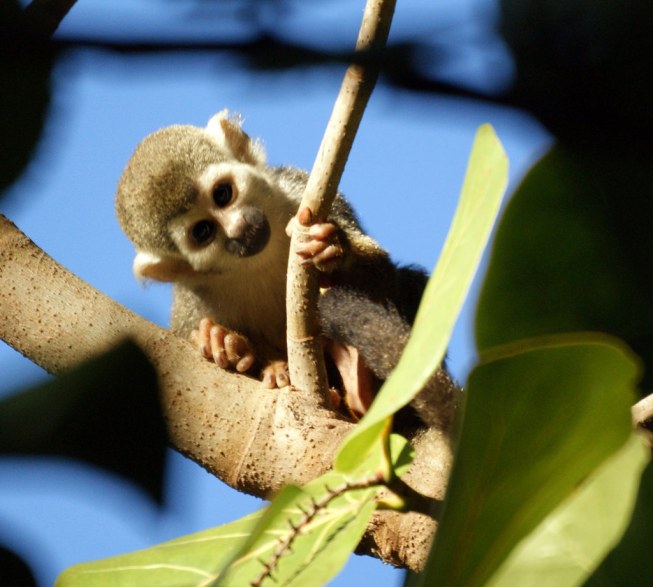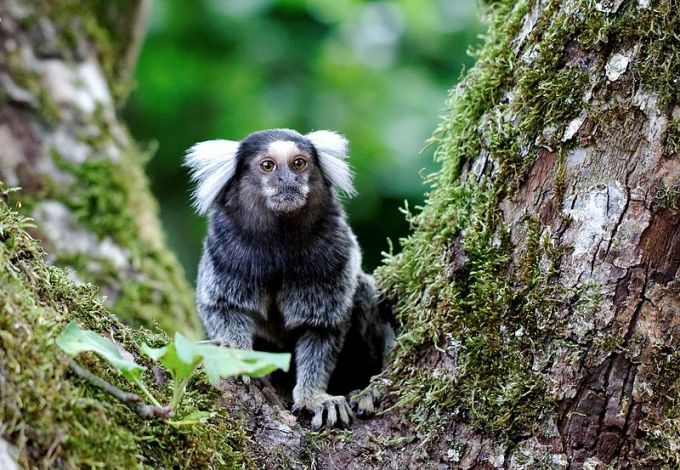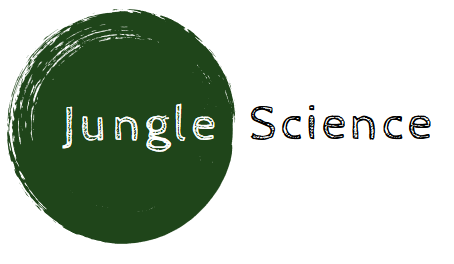It is legal to keep primates as pets in the UK. Yes, just let that one sink in for a minute. The question asked here is whether keeping primates as pets is ethical. To answer this question we need to understand how this is regulated under legislation and how it affects all parties involved, including crucially, the primate’s welfare.
What does the law say?
The Convention on International Trade in Endangered Species of Wild Fauna and Flora (CITES) prevents the import of endangered species into the UK, but it is legal in the UK to keep a primate as a pet. The UK is only one of six member states of the European Union (EU) to allow private keeping, however it is required by national law that permitted species are registered. The Animal Welfare Act 2006 Section 9 states the duty of the person responsible for the animal must ensure that the needs of that animals are met to the extent required by good practice. These needs closely resemble the five freedoms, a welfare concept relating to the physical, psychological and natural state of an animal and the prevention of unnecessary suffering, which persists in many forms within animal welfare guidelines and legislation. Full freedom from for example hunger isn’t a realistic concept. After all, if an animal is never hungry, it won’t eat. In the Animal Welfare Act, the phrase ‘needs’ is used instead of ‘freedoms’. This creates the perception that the focus is on the realistic state of an animal, the state in which it should be kept. Understanding these ‘needs’, requires further knowledge of species-specific behaviour to ensure a good quality of life.
To provide this further knowledge, there is a code of practice for the welfare of privately kept non-human primates, which describes welfare considerations for keeping primates in private collections, and acts as a supportive document to the Animal Welfare Act 2006. The keeping of primates in zoos or research facilities is not covered under these guidelines, and are instead covered by the Zoo Licensing Act 1981 and the Animals (Scientific Procedures) Act 1986. Breach of the code only cannot lead to persecution, however if a breach of the Animal Welfare Act occurs, the code can be used as support for persecution in Court.
The Dangerous Wild Animals Act 1976 (from here on ‘DWA’) states that no person can keep a dangerous wild animal, unless a local authority grants a licence under the DWA. The DWA was introduced in 1976 to ensure that private owners keeping dangerous animals do not pose a threat to public security. A licence is granted if the local authority is satisfied that the owner is a suitable person, there will be no nuisance or a threat to public safety, accommodation is secure and appropriate in terms of construction, size, temperature, lighting, ventilation, drainage, cleanliness, the number of animals it holds and their ability to exercise, and suitable food, drink and bedding is provided. The DWA was modified in 2007, removing squirrel monkeys, tamarins and night monkeys from the Schedule to the Act, thus currently these species do not require a licence to keep. Table 1 outlines which species of primate require a license. Notably, marmosets, titi monkeys and saki monkeys also do not require a license to keep.
Table 1. Primates requiring a licence as stated under the Schedule to the Dangerous Wild Animals Act 1976.
| Primate family | Common names |
| Hominidae
(All species except those of genus Homo) |
Anthropoid apes; chimpanzees, bonobos, orang-utans and gorillas. |
| Cebidae
(all species, except those of the genera Aotus, Callicebus and Saimiri) |
New-world monkeys (including capuchin, howler, saki, uakari, spider and woolly monkeys).
Night monkeys (also known as owl monkeys), titi monkeys and squirrel monkeys are excepted. |
| Cercopithecidae
(All species) |
Old-world monkeys (including baboons, the drill, colobus monkeys, the gelada, guenons, langurs, leaf monkeys, macaques, the mandrill, mangabeys, the patas and proboscis monkeys and the talapoin) |
| Indriidae
(All species of the generia Propithecus and Indri (Avahi laniger is excepted)) |
Leaping lemurs (including the indri and sifakas).
The woolly lemur is excepted. |
| Lemuridae
(All species, except those of the genus Hapalemur) |
Large lemurs.
Bamboo or gentle lemurs are excepted. |
| Hylobatidae
(All species) |
Gibbons and siamangs. |
Does the law protect primates?
The code just offers guidance, so it does not directly protect primate welfare. However, it may be a useful tool to ensure persecution in cruelty and neglect cases. The code specifically notes that it should only be used as a starting point and further research when keeping a primate as a pet is necessary to cater for individual and species-specific needs. It is arguable though whether in reality keepers will keep to this advice. The code also states that record-keeping must be undertaken, but it is arguable whether keepers are sufficiently knowledgeable to maintain accurate and appropriate records. Furthermore, the code suggests that keepers ought to seek assistance from and be registered with a veterinarian with primate expertise, however there are few veterinarians in the UK who receive this kind of specialist training. Veterinary medicine courses in the UK commonly offer only one week of training in ‘wildlife medicine’, and are therefore not qualified to handle, assess or treat primates without additional training. Currently, this means that unqualified veterinarians are adding to the welfare issue.
Although there is no mention of disease risks in the code, the DWA states that reasonable precaution must be taken to prevent and control the spread of infectious diseases. The DWA was originally implemented as a response to public concern about the keeping of dangerous animals, and therefore is focussed largely on public welfare rather than animal welfare. Legally imported primates have been identified as a source for different epizootics in the United States and Europe. The risk of humans transmitting disease to the primates is likely less considered, however there are reports of fatalities in pet primates caused by zoonotic disease transfer from keepers. Also, the enforcement of the DWA is questionable as reports have indicated incompliance levels as high as 85-95% (see also Greenwood et al., 2011). Cause for this is the inconsistency of follow-up from local authorities to licence animals and apparent unawareness of authorities of their responsibility to issue licences and enforce the DWA. Furthermore, local authorities lack expertise in primate welfare, resulting in granting of licences for protected animals (e.g. due to confusion over identification) and under illegal circumstances (e.g. unsuitable housing). Moreover, it has been found that due to this lack of primate expertise inspectors and police officials often do not understand the circumstances in which they are able to persecute keepers. Also, following the Amendment to the DWA in 2007, only 66 species of primate now require licencing, excluding the most commonly kept marmosets. This illustrates that practically the DWA and code do not offer protection for the welfare of primates being kept as pets.
UK primate pet trade: scope and issues
In the last 15 years, the international export of live primates has seen a linear increase and the international primate trade is considered a significant impediment to primate conservation. The primary source for pet primates in UK is considered to be through private breeders and dealers, and through the legal importation of primates for reasons other than trade. As the UK government does not monitor primates after an initial six-month quarantine period, it is likely that a proportion of these animals may end up in the trade. Due to the lack of regulation, it is difficult to estimate current actual numbers, with estimates ranging between 1500 and 20000 primates kept privately. More recent estimates however suggest the number may range between 3000 and 9000, with it likely being around 5000. In the UK, it is possible to buy a pet primate from a pet shop, a private breeder or a social media site. In the past five years, online sales have increased. Frequently, traders mislead buyers into thinking the primates are house-trained and well-suited as pets, and ask for increasingly steep prices. A well-meaning individual can thus keep a pet under the pretence of false information, which in turn can lead to compromise of both human and animal welfare.

Primate welfare
Due to their social and intelligent nature, group composition is known to influence the amount of abnormal behaviour exhibited in primates. In over 60% of cases, the RSPCA reported that primates were housed in isolation. Behavioural issues as a result of social isolation or maternal separation, such as the development of abnormal of stereotypic behaviour, have frequently been reported in pet primates. Furthermore, maternal and familial separation can cause stress and consequent physiological changes such as increases in cortisol levels and prolonged decreases in leukocyte levels. Moreover, maternal separation and lack of parental care may result in a lack of learnt natural social behaviours (e.g. difficulties interacting with conspecifics), food neophobia, reduced or no reproductive success, reduced immunity, increased aggression, and decreased survival rates. Hand-rearing in primates is also known to encourage abnormal behaviours and reduce reproductive success. For adequate cognitive stimulation and health, primates require appropriate housing that provides sufficient space to exhibit natural behaviours, and is safe enough to prevent injury. Moreover, although primate diets are commercially available, these do not take into account species-specific differences, and thus problems can still occur as a consequence. Marmosets are New World primates, which are particularly susceptible to vitamin D deficiencies, which can cause metabolic bone disease or rickets. Nutritional disease is unfortunately a particularly common problem in rescued marmosets, and one that can be easily prevented through provision of an appropriate diet and vitamin D3 supplementation.
Who benefits from the trade?
The primary stakeholders that are involved in and affected by the UK primate pet trade include: the primates themselves, rescue centres, the UK government, international governments and biodiversity, buyers and traders. So let’s look at this systematically and see whether the costs outweigh the benefits:
Trader: this person is free to trade primates and gains an income as a result of this trade.
Traded primates: their physical and psychological welfare is frequently reported to be compromised due to inadequate care. They are not free to exist in a natural habitat or exhibit natural behaviour. The lives of these animals have value and currently legislation does not protect their welfare.
Environment: the primate pet trade does not benefit biodiversity conservation. These animals have to come from somewhere, and will likely have been taken from the wild to be sold on as pets. This does not promote sustainability or maintain biodiversity, which is neither beneficial for animals or humans.
Government: the government has to deal with the health and safety implications of primate kept as pets and the potential threat of invasive species affecting biodiversity in the UK, resulting in economic cost. The government does have the freedom to manage the trade, but currently it could be argued that for humans and animals equally, no fair system exists as in most cases the current situation is incompliant with the DWA, Animal Welfare Act and/or code of practice.
Buyer: the wellbeing of the buyer is compromised, as he or she may not be aware of the health and safety risks involved in keeping a primate pet. He or she does have the freedom to choose to buy such a pet, but the trade often happens unfairly (and/or unlawfully), with buyers being given false information by traders or given a steep price. If the buyer then realises later on that the purchase was a mistake, the animals may be moved to a better home or confiscated, resulting in financial and possibly emotional loss for the buyer.
So, the trader receives income, is able to trade and choose whether to do so lawfully and fairly or not. The buyer has the legal choice and opportunity to purchase a primate as a pet in the UK. Arguably, the government is able to manage the trade and related costs to the economy, environment, consumer health and animal welfare, however as previously discussed, the current system does not enable the government to do so resulting in relatively few benefits associated with the trade. I think it is clear that here the costs massively outweigh the benefits.
So what’s next?
From an environmentalist perspective, the ethical decision would be to change the current system or ban the primate pet trade in the UK. This would also provide the best outcome for the majority of stakeholders involved. The government is likely to think in terms of what is best for the majority of people and the country itself, suggesting that a change in the current system is necessary and laws must be enforced to ensure ethical treatment of both humans and animals alike. But would an immediate ban be a suitable solution?
The code frequently phrases welfare needs with the word ‘appropriate’ and ‘suitable’, which leaves potential welfare issues open to interpretation and arguably does not adequately educate the keeper. It may be beneficial for DEFRA to write additional codes of practice for the most commonly kept species, in order to provide keepers with more detailed, readily available information on welfare needs of these species, which could lead to easier persecution and a potential decrease in cruelty cases. Moreover, strict control and monitoring of the trade in the country would better identify the scope of the issue and how to manage it, upon which stricter enforcement may restrict the trade from growing and ensure the welfare of pet primates currently kept. I think the government should work towards a ban of keeping primates privately. However, an immediate ban would leave thousands of animals in need of rescue. Therefore, careful planning and consideration of welfare, ethics and legislation is required to gradually mitigate this issue.

Please feel free to leave a comment below!
This is the first article in a series of articles about conservation and welfare ethics. The aim of this series is to provide insight into the science behind ongoing conservation and welfare issues and question the influence and morality of current actions.
Check out the Monkey World website for more information on their work of rescuing and rehabilitating primates from the pet trade.
Find out how you can help by visiting the RSPCA, WildFutures or Monkey World website.
